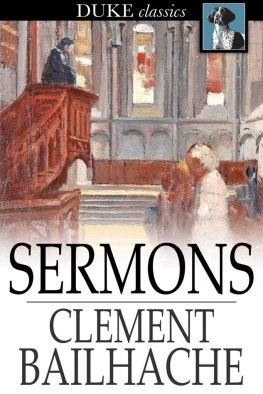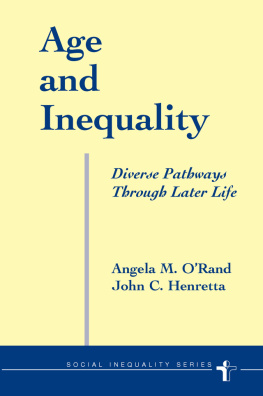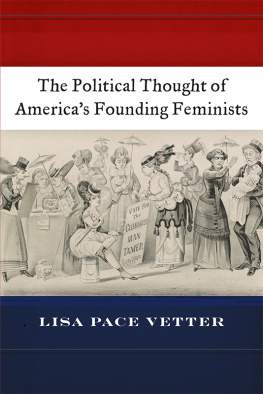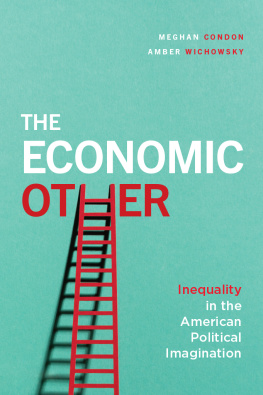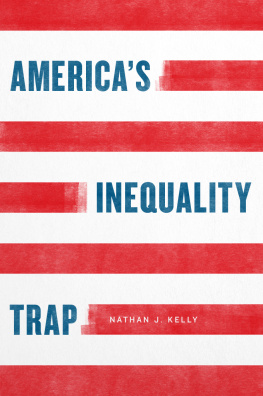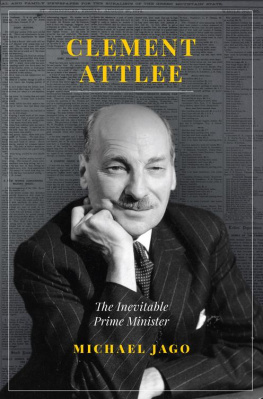2015 by the University Press of Kansas
All rights reserved
Published by the University Press of Kansas (Lawrence, Kansas 66045), which was organized by the Kansas Board of Regents and is operated and funded by Emporia State University, Fort Hays State University, Kansas State University, Pittsburg State University, the University of Kansas, and Wichita State University
Library of Congress Cataloging-in-Publication Data
Fatovic, Clement, 1973
Americas founding and the struggle over economic inequality / Clement Fatovic.
pages cm. (Constitutional thinking)
Includes index.
ISBN 978-0-7006-2173-6 (hardback) ISBN 978-0-7006-2151-4 (ebook)
1. EqualityUnited States. 2. Income distributionUnited States. 3. United StatesSocial policy17751783. 4. United StatesHistoryRevolution, 17751783. I. Title.
HN90.S6F38 2015
305.50973dc23
2015026842
British Library Cataloguing-in-Publication Data is available.
Printed in the United States of America
10987654321
The paper used in this publication is recycled and contains 30 percent postconsumer waste. It is acid free and meets the minimum requirements of the American National Standard for Permanence of Paper for Printed Library Materials Z39.48-1992.
For Rebecca
FOREWORD
For centuries Americans have been resistant to the idea that government has a role in reducing economic inequality. Against the expectations of thinkers such as Alexis de Tocqueville, who imagined that commitments to popular sovereignty and political equality would, over time, incline citizens to favor equality more generally, Americans have historically embraced economic inequality as a necessary consequence of equality of opportunity. The Horatio Alger myth so seized the American imagination that throughout US history most Americans have opposed redistribution on the expectation that with enough effort and talent anyone could become wealthy and ought to be able to keep the fruits of ones labor and enjoy ones wealth. As political scientist Jennifer Hochschild showed in her classic book Whats Fair: American Beliefs about Distributive Justice, Americans cherish political equality but also are very comfortable with economic inequality. Most Americans have seen no necessary connection between these two kinds of equality. This attitude found political sustenance in appeals to the authority of the American founders, who arguably resisted pure democracy in favor of a complex republic designed to dampen the tendency of the idea of equality to intrude upon a commitment to liberty. If Americans are free to pursue their dreams and develop their talents, it has been thought, some will inevitably succeed and others fail, butin principleanyone could become very rich. It is this attitude that fuels the Tea Party movement today.
In recent years this optimistic and idyllic picture has been challenged by the fact that economic inequality is as great as or greater than it was in the era of the robber barons and by pessimistic prognostications of some economists who see this problem getting still worse in the future. French economist Thomas Piketty published a 700-page book, Capital in the Twenty-First Century, that became a best-seller. A year into his second term, President Barack Obama gave a speech in which he asserted that the problem of growing economic inequality is the defining challenge of our time. The economic gap between the few super-rich citizens and most Americans has become so massive that even Obamas Republican opponents have taken notice and pledged to do something about it. It is likely that a prominent issue in the 2016 presidential campaign will be the problem of inequality and what to do about it.
What changed since 1982, when Hochschild wrote her book documenting Americans comfort with economic inequality, and 2014, when economic inequality became the defining issue of our time? Over the past thirty years, evidence has mounted that the American dream is a myth. Economic inequality has become more pronounced, and wealth has become more entrenched. More importantly, the idea that everyone would be better off financially even if worse off relative to the wealthy has proven untrue. The income and standard of living of most Americans has stagnated even while the super-rich have accumulated unprecedented wealth. Economists are beginning to revise standard accounts of the logic of capitalism, and other social scientists are exposing other adverse consequences of inequality, such as increased crime and other social costs. A robust economic and social debate today upends conventional understandings of the logic of capitalism. In sum, conventional economic understandings are under siege today.
In the book that you have before you, Clement Fatovic recasts this economic and social debate as a political and constitutional problem. Fatovic challenges the idea that inequality is a necessary consequence of liberty by showing that a concern for equality is a necessary condition for freedom, properly understood. Returning to the debate surrounding the founding of the American republic, Fatovic shows that the conventional and instinctive appeal to the founders as authority for the proposition that no legitimate constitutional argument supports governmental support for redistributive policy is mistaken. Thomas Jefferson, James Madison, and Thomas Paine, to say nothing of less well-known thinkers of the founding era such as Noah Webster and Abraham Clark, all thought it imperative that government resist inequality in order to make political freedom viable and vital. If this book did nothing more than correct mistaken appeals to authority, it would be a signal contribution to the contemporary debate. Fatovic makes an irrefutable case that leading politicians of the founding generation and early history of Congress thought that governmental efforts to avoid or mitigate economic inequality were uncontroversial and legitimate legislative issues. Of course, there was much debate and contest regarding particular proposals, and many were defeated, but modern-day libertarian antipathy to any and all redistributive policy finds little support in the thinking of influential founders and statesmen at the origin of our constitutional order.
Still more important than the issue of original intentions and misinformed appeals to authority is Fatovics project to enlarge and enlighten contemporary political debate. In his account of a huge array of political issuesincluding suffrage and representation, tax policy, regulation of militias, revenue plans, and even the design and ratification of the Constitution itselfFatovic shows the economic concerns surrounding equality were nested in a larger political conundrum. As I mentioned above, todays partisans often assume that economic inequality is a by-product of the nations commitment to freedom. The burden of this book is to show the reader how todays conventional wisdom rests on a mistaken and narrow view of freedom. For the founding generation, political freedomthe ability of ordinary citizens to participate in politicsrequires a modicum of economic equality. Conversely, pronounced and serious levels of inequality render ordinary citizens unfree. Americans have lost the understanding and practice of debating public policy from this more capacious perspective on equality and freedom. This book recovers the resources needed, along with a refreshingly original argument necessary, to reframe democratic discourse about a defining issue of our time.





